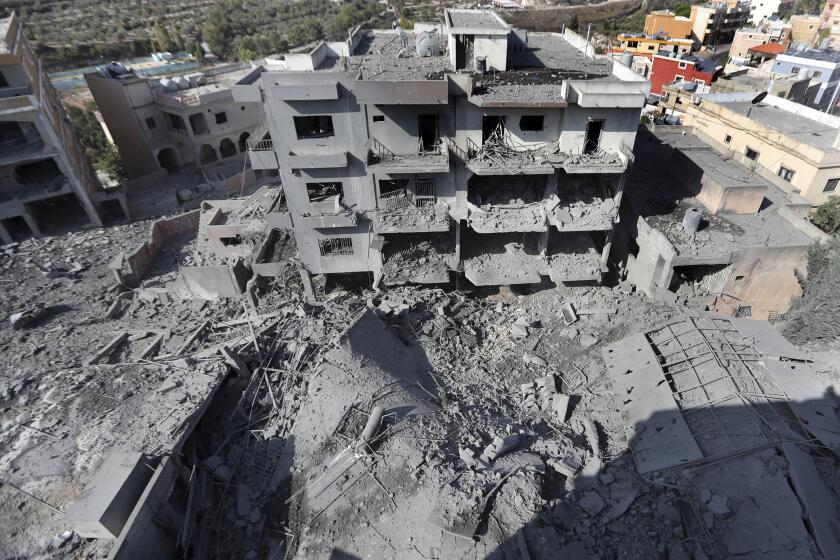Europe : Russian Army’s No. 1 Enemy May Be Hunger : Officials fear winter of discontent if troops don’t get more food. But some doubt severity of problem.
If the Napoleonic maxim that an army travels on its stomach still applies to modern warfare, the Russian army will not go far this winter.
After denying for several years that the Russian armed forces are underfeeding conscripts, the Defense Ministry announced this month that the hunger problem in the army is “critical” and begged for more money.
“There are serious delays in the supplies of meat, fish, bread, butter and other essentials,” said Defense Minister Pavel S. Grachev. Some pilots and submarine crew members are so poorly fed that their calorie intake does not cover their daily needs, he said.
Conditions are particularly bad in the Far North and Far East, where food reserves are at only half their normal levels. Many of the remote bases can be supplied only by ship during the short Arctic summer. Autumn begins in August, and disaster looms if food is not delivered by then.
“The situation is really very dangerous,” said Col. Vladimir S. Nikanorov, a Defense Ministry spokesman. “If no radical decision is made shortly, the Russian army may well find itself on the verge of starvation.”
In ordinary times, such dire warnings might be dismissed as the rhetorical excesses of budget brinkmanship. Skeptic Pavel Felgengauer, a military affairs columnist for the newspaper Sevodnya, doubts that matters are as bad as the Defense Ministry claims.
“They have always been complaining about the poor defense budget, but they have realized that nobody will sympathize with them for lack of money to buy an extra tank,” he said. The generals are betting that the prospect of a hungry army is more likely to open coffers, Felgengauer said.
Nevertheless, there is mounting evidence that hunger is indeed a problem.
In 1993, four sailors on far eastern Russky Island died of malnutrition and maltreatment, and surviving recruits were 20 to 70 pounds underweight after being fed nothing but porridge and potatoes for months. Several navy officers were fired, but conscripts returning from far-flung army bases continue to describe a life of constant hunger.
*
Inflation has made the crisis worse. Nikanorov said the cost of the average daily ration rose from 3,635 rubles in January to 7,325 in July--about $1.67 at last week’s exchange rate. But the army is spending only 879 rubles--20 cents a day--to feed each soldier.
“Can you imagine feeding a strong adult for a whole day on 879 rubles and expecting him to perform his duties adequately?” Nikanorov asked. Most units now grow vegetables and raise livestock to supplement their meager rations, he said.
More to Read
Sign up for Essential California
The most important California stories and recommendations in your inbox every morning.
You may occasionally receive promotional content from the Los Angeles Times.










